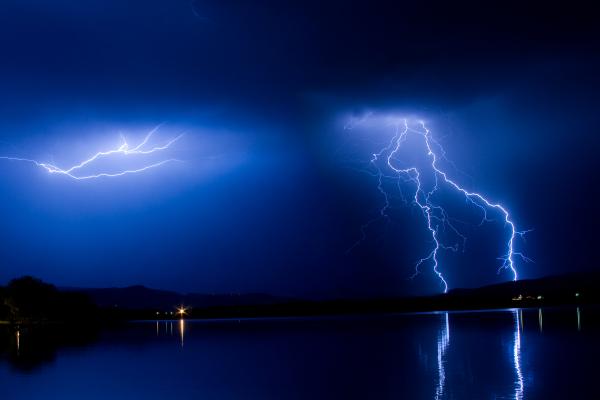I'd first like to point out that we wrote villanelles last year in English, and I wrote mine about an old man telling kids to get off his lawn. The benefit of the villanelle is presumably the repetition of two refrains over and over again, connecting all of the ideas throughout the poem.
Going "gentle into that good night" is probably a euphemism-y metaphor for a quiet death like our friend Tennyson described in "Crossing the Bar." However, as the speaker addresses his father, he is making a case against a quiet death. Question two is staring me down, so I'm going to try to tackle the speaker's view of the various types of men toward death.
The speaker argues that they all have relatively calamitous deaths for separate reasons:
- Wise men: because their words "forked no lightning" (5), which presents a bunch of confusing images to me, most of which end in electrocution. I think it means that the words of the wise aren't received as well as they would like them to be.
- Good men: because their "frail deeds" did not "dance" as they would have liked them to (8)? Maybe the deeds of good men seem unsubstantial and ineffective in retrospect.
- Wild men: because they "grieved" the sun as the "caught and sang" it (10-11). This is a little bit too metaphorical for my taste. It's a metaphor for . . . being ashamed of their lives, perhaps.
- Grave men: because they see with "blinding sight" (13). They have a very good understanding of life and death.
That was a lot of speculation on my part. My point is that the speaker doesn't want his father to go "gently" because none of those other guys in the four groups go gently for whatever reasons.
Ooh.

No comments:
Post a Comment